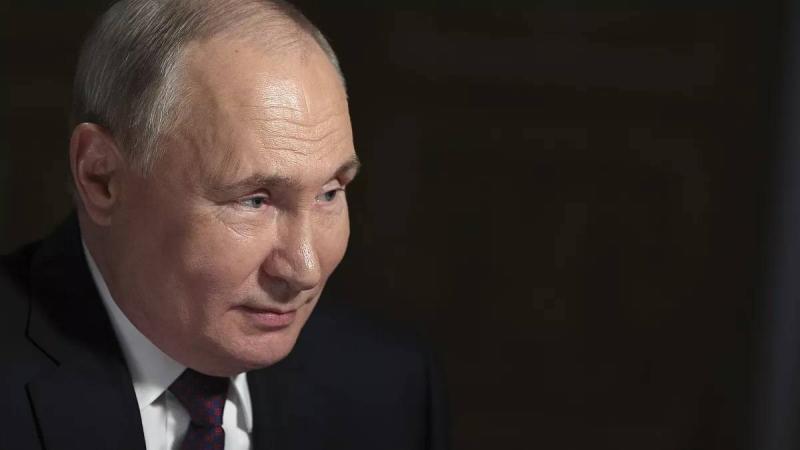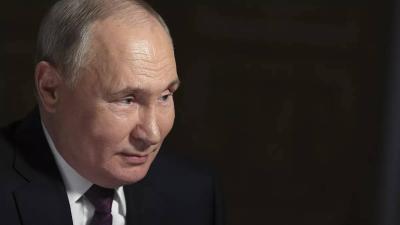Despite the European Union and the West's efforts to respond to Putin's actions through unwavering support for Ukraine—financially, logistically, and even through military presence—the United States has urged further support for Ukraine to halt Putin's barbarity and erratic actions in the war. The West now harbors a legitimate fear of Putin's potential threat to European nations. On the other hand, Ukraine remains steadfast in its resolve to confront Putin and defend its territory, which it views as a defense of Europe and its values.
Ukraine's response remains rigid, rejecting dialogue with Russia as the conditions for negotiation are incomplete and the Russian calls for dialogue lack seriousness. The notion that Ukraine has collapsed is countered by the ongoing annual conference held by Ukrainian President Volodymyr Zelensky, where Ukraine's stance is resolute, and the war continues. No external pressures can be imposed on Ukraine; thus, it is mobilizing nearly half a million volunteers to face Russia, following advice from former European military leaders to assemble new forces for resilience given its losses and lack of volunteers.
The West continues to support Ukraine, understanding that the battle is not just against Ukraine but the West itself, which will not compromise on Zelensky’s behalf. Trust in Putin is absent; he seeks to promote ideas aimed at freezing the front and misleading others into believing the battle is over, only to strike later. Therefore, the West has taken up the responsibility of financing Ukraine militarily and financially.
The Kremlin is engaged in a psychological warfare against Ukraine and a diplomatic propaganda war against the West to mislead Western politicians, diverting attention to illusory negotiations and away from Ukraine's pressing need for defensive weapons to thwart any incoming attacks, using covert channels to undermine military assistance discussions in European countries. On American media, former U.S. Army commander Ben Hodges expressed disappointment in the failed Ukrainian counteroffensive, attributing it to the West's sluggish provision of necessary aid.
Ukraine's commitment to continuing the war is underscored by Josep Borrell, the EU's foreign affairs representative, reinforcing that Putin will fight until victory in Ukraine. He is trying to create division among Western states by proposing peace initiatives while still lobbying for fighters on the front lines, with missiles falling on Ukrainian cities. If the EU does not change its approach and treat Ukraine seriously, it allows Putin to triumph over Ukraine and pose a threat to Europe in the future. The upcoming political transition in the U.S. could embolden Putin, allowing him to deliver severe blows to Europe during the handover period when there is no U.S. president to command responses.
In a comparison of the two leaders' speeches, both emphasize the continuation of war. However, President Zelensky was clear in postponing the elections planned for 2024, declaring that all elections are delayed due to the state of emergency and war. This means the focus is on increasing military recruitment and strengthening Ukraine's forces as they prepare for a fresh round of conflict. Despite facing challenges on the battlefield, Ukraine has shown remarkable resistance against Russia, successfully withstanding the attacks of the world’s second-largest military. Zelensky has made it clear that Ukraine will not yield its territories and will not bend to Western pressure for concessions, asserting that America and the West will not abandon them.
While Putin tries to present his agenda as prioritizing the cessation of war to prepare for the presidential elections and repositioning his military, the ongoing Ukraine crisis has become a personal issue for both presidents. Any strategic pivot of related countries is contingent on changing regimes and executing a concrete plan for any effective ground changes. Russia's historic view that "whoever occupies Ukraine occupies the heart of Europe" informs Putin’s calculations for European negotiations.
In recent days, Putin stated that "the U.S. has plunged us into the Ukraine war," which reflects his aim to isolate the EU and negotiate with the U.S. on equal terms. However, Russia has revealed itself as a rogue state overwhelmed by its own delusions and corruption. It miscalculated its ability to challenge the U.S. and negotiate from a position of strength, believing it could intimidate the world through food supplies and oil.
As we reflect on the war two years in, it continues to grind on, with both sides aiming to achieve their agendas. The war persists amid sustained Western support, despite Russian propaganda aiming for a ceasefire to secure Putin an immediate electoral victory, which he hopes to achieve ahead of his upcoming elections while awaiting the results of the U.S. elections, hoping for a change in administration that might favor him.
Entering the third year of this conflict, both nations remain in a standoff, even as the West continues austerity measures with Ukraine. The U.S. remains indecisive in its full support for Ukraine, while the Russians have not made any significant advances or applied pressure on the West. Ukrainians continue to showcase resilience in defense. It appears that the outcomes of Russian elections—which Putin extended by three days—will not grant him an unfettered mandate to escalate his belligerent acts in Ukraine.
The West does not trust Putin, leading to the emerging equation: no defeat for Ukraine, nor a defeat for Russia. The EU, the U.S., and the West are unprepared to absorb an Ukrainian defeat that would impact them significantly. A Russian defeat could evoke memories of the Soviet Union's collapse and its detrimental effects on Europe. However, days ahead will likely affirm that Ukraine will soon join the EU, granting it legitimate protection from NATO, which would effectively curb Russia's aggressive tendencies.




